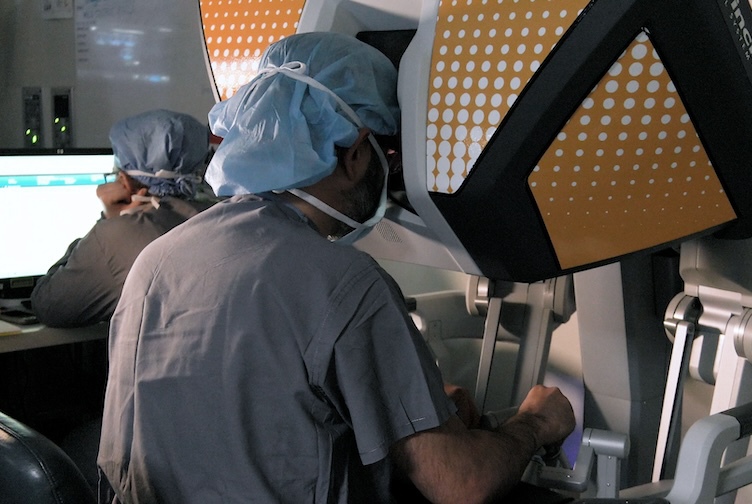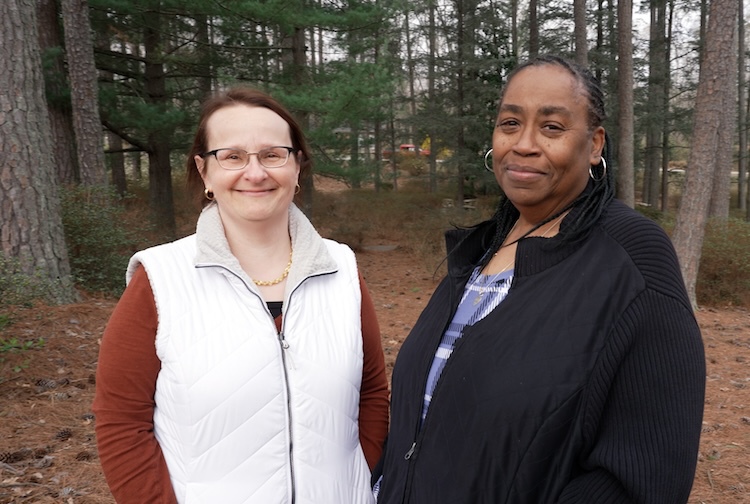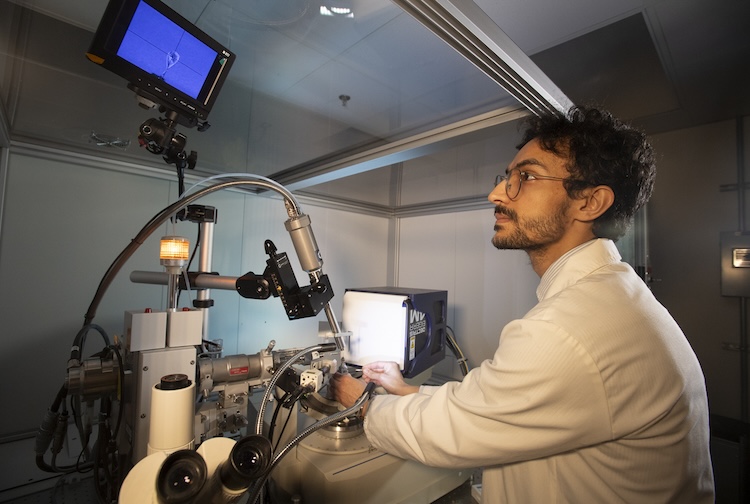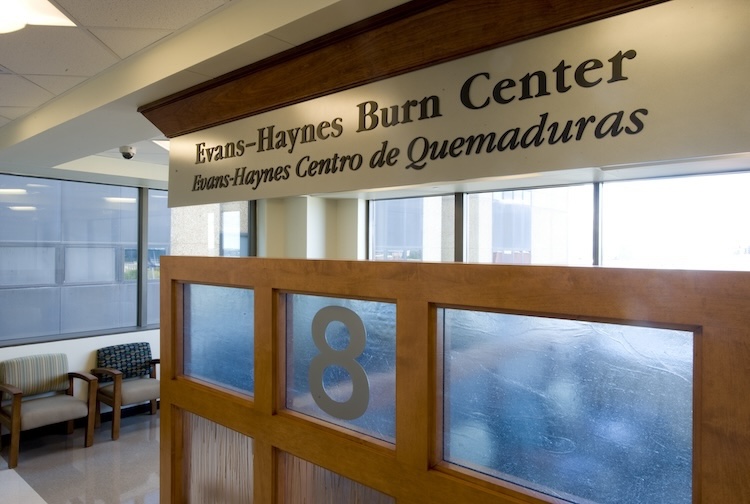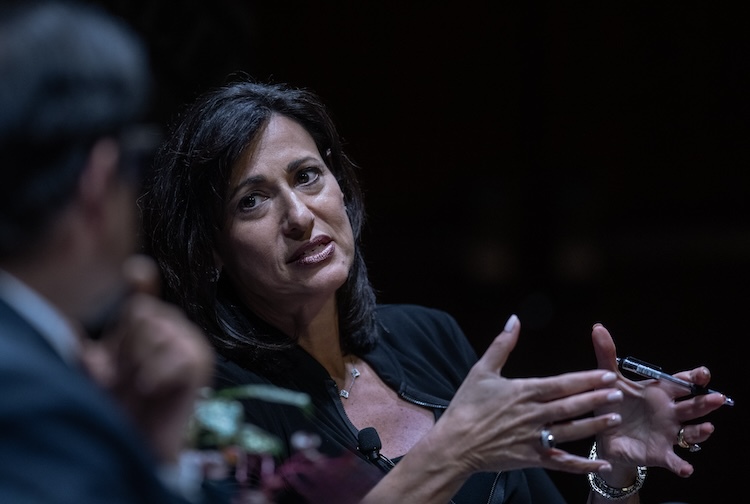
Bonded for life to her work ‘family,’ VCU Health Tappahannock Hospital staff member donates kidney to colleague
Hospital employees receive unmatched care for transplant and subsequent emergency surgery at VCU Health Hume-Lee Transplant Center.
April 17, 2024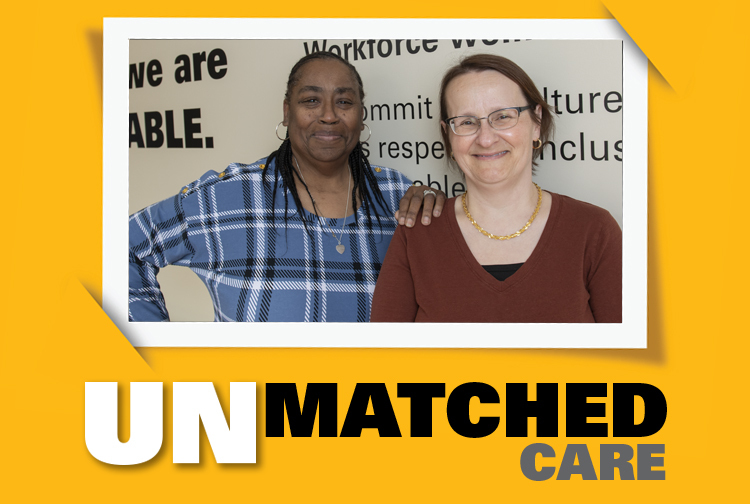 VCU Health Tappahannock Hospital employees Kim Nelson and Jacqueline Ambrose want others to know that becoming a living organ donor can save lives. (VCU Enterprise Marketing and Communications)
VCU Health Tappahannock Hospital employees Kim Nelson and Jacqueline Ambrose want others to know that becoming a living organ donor can save lives. (VCU Enterprise Marketing and Communications)
By Kim Van Sickel and Sara McCloskey
Sometimes there is nothing better than supportive coworkers. The Food and Nutrition Services at VCU Health Tappahannock Hospital know this firsthand. Some might say they are a work family, not just colleagues.
Kim Nelson has been with Tappahannock Hospital for more than 45 years. As the hospital’s director of Food and Nutrition Services, she helped create a close-knit staff. Their work requires a united team approach to feed patients, hospital team members and visitors each day and to support hospital special events requiring extra hours.
“We are just like a family. A lot of [the people in the department] have been here long-term, like myself, 25 or 30 years,” Nelson said. “Actually, we know more about each other than we tell our spouses and family.”
For nearly half of her time at the hospital, Nelson has been working hand in hand with registered dietitian Jacqueline Ambrose. Not only do they collaborate on patient menus, but Ambrose is also a source of nutrition education for Nelson, who was struggling with kidney disease.
“From my experience, most donors are family members. The donor requires more love and more sacrifice. Jacqueline and Kim’s story is amazing, it’s very heartwarming. It’s hard to give a kidney to a coworker, right? So that’s why I think this story is very unique.”
Seung Duk Lee, Ph.D., M.D., VCU Health Hume-Lee Transplant Center
Knowing she had a family history; Nelson had been monitoring her kidney health with a specialist for three years. And she leaned on her close work friend’s expertise on how to eat for optimal health.
Even with that, when Nelson learned she would need a kidney transplant, she felt overwhelmed. She looked to family and friends for support. Many people in her life, from family to even co-workers, wanted to help but were themselves struggling with chronic health issues that prevented them from being considered.
For Ambrose, learning that Nelson needed a kidney gave her the nudge to start the process to see if she could be a candidate to become a living organ donor. And when she was confirmed to be a match, she was excited to step up.
“God was calling me to do this,” she said. “When everything aligns, you know that you’re on the right path.”
Becoming a living kidney donor
Nelson was grateful for her colleague’s offer, but unsure at first. This was a lot to ask of someone. There are several tests and screenings that are required as part of the organ donor process.
But even more than that, Nelson knew Ambrose had a family of her own. These decisions have a significant ripple effect on entire families, and she wanted the Ambrose family to be sure. They were.
“Jacqueline stepped up and God made it happen,” Nelson said.
Having a living organ donor speeds up the process of getting a transplant. It also helps the recipient avoid years of dialysis that often come with waiting for a deceased kidney donor, which typically takes 2 to 6 years.
Oftentimes, living organ donors are members of the recipient’s family. But as seen with Ambrose and Nelson, that isn’t always the case. VCU Health Hume-Lee Transplant Center's transplant team has seen childhood friends, members of a church and even other VCU Health co-workers volunteer to be living donors.
The process to become a living donor isn’t very complicated, says Seung Duk Lee, Ph.D., M.D., associate surgical director of living liver donor transplant at Hume-Lee. Prospective donors fill out a questionnaire about their health history and go through a series of physical exams, including bloodwork, to see if they are healthy enough to donate and to see if they’re a match for their chosen recipient. Some people choose to become an altruistic living donor, meaning they offer to donate their healthy organs to individuals they may not ever meet.
“From my experience, most donors are family members. The donor requires more love and more sacrifice,” Lee said. “Jacqueline and Kim’s story is amazing, it’s very heartwarming. It’s hard to give a kidney to a coworker, right? So that’s why I think this story is very unique.”
The living donors and recipients also meet with a highly collaborative care team to ensure the patients have support for every step of the process before, during and after the transplant. The team includes nurse coordinators, social workers, dieticians, surgeons and other specialists.
VCU Health Hume-Lee Transplant Center began its robotics surgery program in 2016. (VCU Enterprise Marketing and Communications)
Unlike kidneys from deceased donors, living donor kidneys don’t need to be transported to Hume-Lee. The process to transplant the kidney from the donor to recipient is done simultaneously, with state-of-the-art minimally invasive robotic technology being used for the living donor’s surgery.
“The robot’s eye and hands are very tiny, much smaller than the human hand. So, it requires only a small incision on the abdomen. The small incision causes less pain, less wound complication and then a much faster recovery,” Lee said.
Lee notes how Hume-Lee is “growing very much” and is expanding its robotics surgery program, which began in 2016. Hume-Lee was the first center on the East Coast to conduct a “complete robotic” surgery to procure a kidney organ from living patient in 2019. The procedure leaves less scarring for the donor, meaning a shorter recovery time compared to previous methods. In 2023, the transplant team started using this technology for living liver donors.
Nelson and Ambrose were scheduled for surgery in February 2022. The number of visitors a patient could have was still limited at VCU Medical Center – where the operations took place – and other hospitals across the commonwealth due to continued waves of COVID-19 cases.
Marlon Levy, M.D., interim CEO of VCU Health and interim senior vice president of VCU Health Sciences, was Nelson’s lead surgeon. Nelson says he came by regularly to check up on her, which made all the difference during her hospital stay.
“My husband couldn't come; my daughter couldn't come. No one could come to see me. Just having [Dr. Levy] come in made a big difference when you couldn't have outside visitors,” Nelson said. “I knew I was being taken care of very well – not because I was an employee of VCU [Health], but because I am a person. And I really appreciate it. And not only him, but others in the hospital, they were very kind.”
Several days after Nelson was discharged, she returned to Hume-Lee for a check-up. Nelson’s care team noticed she may have a kidney infection and she was rushed into surgery. She recalls Levy telling her that “we are going to get this kidney working,” which put her mind at ease.
“I never had any worry about it. I knew I was in good hands,” Nelson said.
A new focus on raising awareness for living organs donations
On February 15, 2022, Nelson successfully received a new kidney from Ambrose at Hume-Lee. Nelson and Ambrose are now even more than friends and colleagues. They are indeed part of one another. And they both believe it was equally meant to be.
“It's a miracle some people have to wait for,” Nelson said. “It was really special to me because I lost my brother at age 47 due to complications with kidney failure... So having this blessing was just amazing.”
“I know that I’ve done something that truly made a difference,” Ambrose said. “And VCU [Health] provides a wonderful experience where they care as much for me as the donor as they do for Kim as a recipient.”
They faced a long recovery but have been supported by each other, their families, and Hume-Lee Transplant Center throughout the process. Ambrose returned to work after six weeks, and Nelson was back by late spring.
Jacqueline Ambrose and Kim Nelson have a close friendship after working together for decades at VCU Health Tappahannock Hospital. (VCU Enterprise Marketing and Communications)
The women have a hard time expressing how this experience has impacted them.
“It's a very different bond, to be honest. I don't really know how to describe it, to be very blunt, but it's a special one in that I guess I've always felt that I was blessed to be able to have this opportunity to help,” Ambrose said. “I think we will always have that camaraderie between us. We will always laugh a lot and we will always have a friendship that is a very different friendship because of the experience we've had.”
“Jacqueline is not the type of person who expects anything, but I feel so indebted to her every time I think of her,” Nelson said. “What mattered was the love and respect we have for each other, not only because we work together – it's just being friends and understanding each other. I think that really uplifted a lot of people within the hospital.”
Nelson and Ambrose felt called to this mission – to raise more awareness about giving the gift of life through a living organ donation. They have been comforted by the love, support and prayers of so many people around them.
Nelson added with a laugh, “I like to joke that I knew the kidney transplant would work because we’re too much alike for it to fail.”
Nelson and Ambrose are grateful for each other’s unwavering dedication to their lasting friendship and their VCU Health family who supported them through this difficult time. Recognizing the unmatched care they received, both women want others to know that being a living organ donor is well worth saving a life and they are committed to help others navigating a similar journey.

